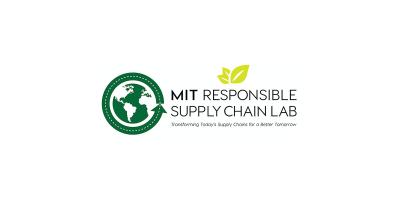Pressure is growing for businesses to engage in sustainable practices. Consumer attitude, NGO oversight, government regulation, and shareholder expectation of the social and environmental impact of company supply chains are shifting at varying speeds around the world. The viability of entire industries depends heavily on maintaining social and environmental resources. The Lab was founded by Dr. Alexis Bateman to organize the multiple tracks of sustainable supply chain research already underway for nearly ten years at MIT CTL.

For the most recent updates view the MIT Responsible Supply Chain Lab (RSL).
Project Examples
Palm Oil Traceability and Small Holders Initiative: This project informs traceability and no-deforestation practices in the palm oil supply chain with independent smallholder farmers (ISHFs) and small growers, through insight into the complex network of traders in Malaysia. A new framework for these constituents in the P&G palm oil supply chain is being researched and developed. It aims to facilitate and incentivize commitment to sustainability while improving ISHF’s practice, productivity and livelihood, through the Roundtable on Sustainable Palm Oil (RSPO) certification and beyond.
Seafood Supply Chain Risk Assessment: MIT RSCL and ThisFish, an initiative of Ecotrust Canada, are partnering to create a risk assessment framework, open database, and application that allows stakeholders at all points of the supply and governance chain, to assess risk in supply chains with regard to the legality, responsible sourcing and product claims of seafood.
Transparency Initiative: The Lab addressing supply chain transparency through research on: standards assessment, evaluating the value of transparency, and a cross-commodity traceability analysis. It also seeks to host a consortium, Leadership on Ethical and Accountable supply chain Practices (LEAP) to help synthesize prevailing trends in supply chain transparency. LEAP will create a neutral platform where companies may share their ethical and accountable best practices through roundtables, workshops, and review reports.
Evaluating Social Transparency in Global Apparel Supply Chains: ~With Denis Bozic. Consumers are increasingly aware of the apparel industry’s difficulty in ensuring safe and healthy conditions for its workers. As public pressure on the industry increases, many companies are attempting to improve supply chain transparency to help rectify these problems. At the same quantifying transparency is difficult without clear definitions. This project seeks to establish a framework and methodology that can be used to define and quantify social transparency across different companies using the apparel industry as a case study. We are developing these methods by understanding how business, technology, and policy may be employed to analyze transparency. We aim to provide suggestions for correcting compromised working conditions in apparel supply chains.